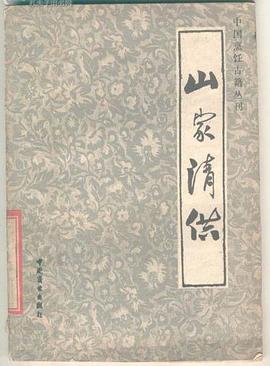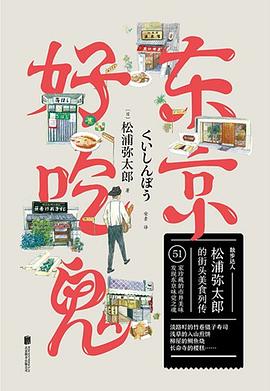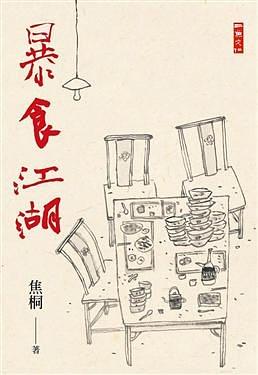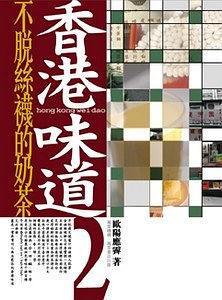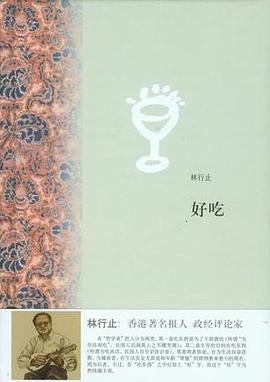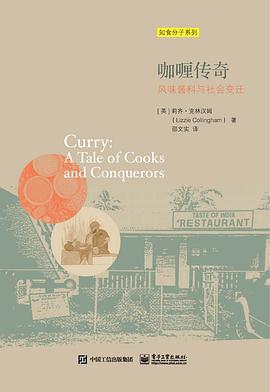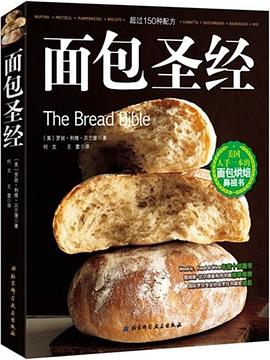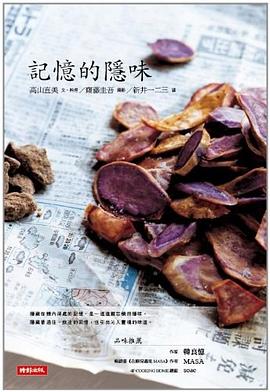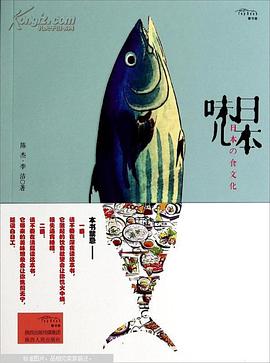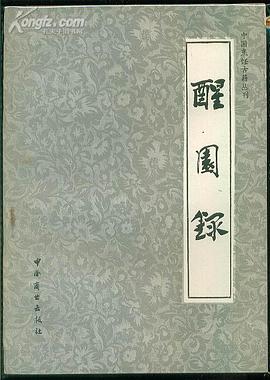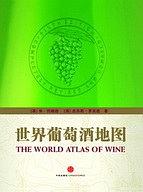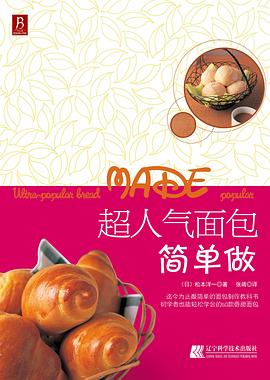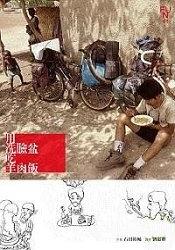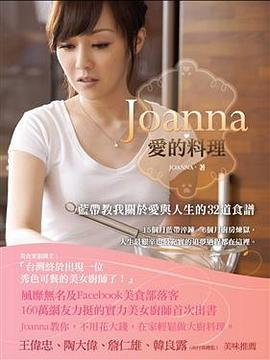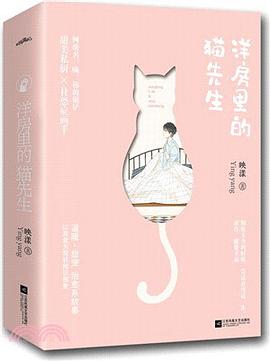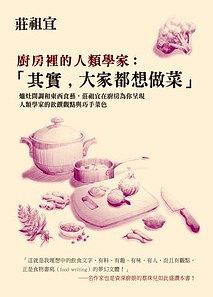

具体描述
From Publishers Weekly
Food writer Dunlop is better known in the U.K., where her comprehensive volumes on Sichuanese and Hunanese cuisine carved out her niche and eventually became contemporary classics. Turning to personal narrative through the backstory and consequences of her fascination with China, she produces an autobiographical food-and-travel classic of a narrowly focused but rarefied order. Dunlop's initial 1992 trip to Sichuan proved so enthralling that she later obtained a year's residential study scholarship in the provincial capital, Chengdu. There, her enrollment in the local Institute of Higher Cuisine, a professional chef's program, created a cultural exchange program of a specialized kind. The research for and success of her resulting cookbooks permitted Dunlop to return to China in a more experienced role as chef and writer; that led to this reflective memoir, which probes into the author's search for kitchens in the Forbidden City as well as the people and places of remote West China. One key to this supple and affectionate book is its time frame: by arriving in China in the middle of vast economic upheavals, Dunlop explored and experienced the country and its culture as it was transforming into a postcommunist communism. (Apr.)
Copyright © Reed Business Information, a division of Reed Elsevier Inc. All rights reserved.
Product Description
A new memoir by the most talented and respected British food writer of her generation.
Award-winning food writer Fuchsia Dunlop went to live in China as a student in 1994, and from the very beginning she vowed to eat everything she was offered, no matter how alien and bizarre it seemed. In this extraordinary memoir, Fuchsia recalls her evolving relationship with China and its food, from her first rapturous encounter with the delicious cuisine of Sichuan Province to brushes with corruption, environmental degradation, and greed. In the course of her fascinating journey, Fuchsia undergoes an apprenticeship at China's premier Sichuan cooking school, where she is the only foreign student in a class of nearly fifty young Chinese men; attempts, hilariously, to persuade Chinese people that "Western food" is neither "simple" nor "bland"; and samples a multitude of exotic ingredients, including sea cucumber, civet cat, scorpion, rabbit-heads, and the ovarian fat of the snow frog. But is it possible for a Westerner to become a true convert to the Chinese way of eating? In an encounter with a caterpillar in an Oxford kitchen, Fuchsia is forced to put this to the test.
From the vibrant markets of Sichuan to the bleached landscape of northern Gansu Province, from the desert oases of Xinjiang to the enchanting old city of Yangzhou, this unique and evocative account of Chinese culinary culture is set to become the most talked-about travel narrative of the year.
作者简介
Fuchsia Dunlop is a cook and food-writer specialising in Chinese cuisine. She is the author of Shark’s Fin and Sichuan Pepper: A Sweet-Sour Memoir of Eating in China, an account of her adventures in exploring Chinese food culture, and two critically-acclaimed Chinese cookery books, Revolutionary Chinese Cookbook, and Sichuan Cookery (published in the US as Land of Plenty).
Fuchsia writes for publications including Gourmet, Saveur, and The Financial Times. She is a regular guest on radio and television, and has appeared on shows including Gordon Ramsay’s The F-Word, NPR’s All Things Considered and The Food Programme on BBC Radio 4. She was named ‘Food Journalist of the Year’ by the British Guild of Food Writers in 2006, and has been shortlisted for three James Beard Awards. Her first book, Sichuan Cookery, won the Jeremy Round Award for best first book.
目录信息
读后感
对于吃,中国人向来都是认真且自傲的。 《舌尖上的中国》热播的时候,剧中的解说词和画面里的佳肴珍馐一起温暖了游子的乡愁:也许每个人的舌尖都是一个故乡,味道使我们认清明天的去向,更让我们不忘昨日的来处。而在《鱼翅与花椒》的序言中,作者扶霞也说:我们吃的东西,代表...
评分 评分这两年看了好几本外国人写中国的书,比如《江城》《甲骨文》《长乐路》《与中国打交道》。阅读此类书籍我只有一个建议,不要只读内地版。因为有意思的部分常常会因为敏感被删掉。就像这本书,写新疆的那一章被作者自己拿掉了,这种自我阉割不让出版社难做的行为让我对作者也是...
评分“列为看官,我吃了那只菜虫。我咬了那柔嫩的身躯,我用舌头感受到那小小的奶嘴一样的东西,然后吞了下去。菜虫本身味道寡淡,吃着水汪汪的。我感觉也还好。这根本不是什么大不了的事。于是我又咬了一口,把头也吃了。接着我平静地继续午饭,挺好吃的。” 作为一名据说连福建人...
评分我看见很多朋友都在问有没有删减。先来说明一下。 我暂时没有时间对照全书,对照了一下最有可能删减的几个部分,没有删减。(对比的是我交上去的完整译稿和出来的书)。当然我没时间对照全书,不敢说别的没那么有可能删减的地方有没有删减。 而大陆和台湾(我没看台版)两个版...
用户评价
这本书带给我的启发,远远超出了故事本身。在阅读的过程中,我不断地被作者提出的问题所触动,它们引发了我对自己生活、对社会、对世界更深层次的思考。它让我开始审视自己的价值观,重新审视那些我曾经认为理所当然的事情。例如,书中对于“家”的定义,以及个体如何在不同的文化环境中寻找归属感,都让我产生了强烈的共鸣。我开始思考,究竟是什么构成了我们的“家”?是地域,是文化,还是人与人之间的联结?这本书就像一面镜子,映照出我内心深处的迷茫与渴望,也指引我开始寻找属于自己的答案。它不仅仅是一部文学作品,更是一次深刻的自我对话。
评分我一直对那些能够跨越文化界限,触及人类共同情感的故事充满好奇。而《Shark's Fin and Sichuan Pepper》恰恰做到了这一点。它所探讨的主题,无论是关于身份认同的挣扎,还是关于个体如何在复杂的世界中寻找自己的位置,都具有普遍的意义。书中人物的经历,虽然发生在特定的时空背景下,但他们所面对的困惑与选择,却resonates deeply with my own experiences. 我发现自己能够在他们的身上看到自己的影子,他们的痛苦与喜悦,也成为了我内心深处的共鸣。作者并没有简单地给出一个答案,而是通过展现人物的成长与蜕变,引导读者去思考。这种开放性的叙事,让我感觉自己不仅仅是一个旁观者,更是一个参与者,与人物一同经历着这场心灵的旅程。它让我更加珍惜生活中的每一个当下,也更加坚定地去追寻属于自己的意义。
评分《Shark's Fin and Sichuan Pepper》之所以能够吸引我,很大程度上是因为它所蕴含的某种哲学思考。它并没有直接说教,而是通过人物的经历和故事的展开,将一些深邃的道理巧妙地融入其中。比如,书中对于“选择”与“命运”的探讨,对于“过去”与“未来”的辩证关系,都让我陷入了沉思。它让我明白,生活并非简单的因果循环,而是充满了无数的可能性与变数。作者以一种非常温和但有力的方式,引导读者去思考生命的意义,去理解个体在历史长河中的渺小与伟大。这种带有思想深度的作品,往往能够长久地留在读者的心中,并持续地影响着他们的思考方式。它让我感到,这次阅读不仅仅是消遣,更是一次精神的洗礼。
评分不得不说,这本书的叙事节奏简直是令人惊艳的。从开篇的某个不起眼的场景切入,作者就如同一个经验丰富的向导,用极其细腻的笔触,将我缓缓地引入一个全然陌生的环境。每一个细节的描绘都恰到好处,既不会显得冗余,又能精准地勾勒出人物的性格和场景的氛围。我尤其欣赏作者在刻画人物内心活动时所展现出的功力,那些隐藏在言语之下的情感暗流,那些不经意间流露出的矛盾与挣扎,都让我对角色产生了深深的共鸣。我感觉自己仿佛就置身于他们之中,与他们一同呼吸,一同感受。书中对于文化差异的呈现也处理得非常得体,没有刻板的标签,也没有居高临下的批判,而是通过生动的故事和鲜活的人物,让我真切地体会到不同文化碰撞时产生的火花与张力。它让我思考,也让我反思,那些我们习以为常的观念,在另一种视角下,又会呈现出怎样的面貌?读到一些情节,我甚至会忍不住停下来,反复咀嚼其中的意味,仿佛每一句话都蕴含着作者深远的思考。这种沉浸式的阅读体验,是在快节奏的现代生活中难能可贵的。它让我暂时忘却了现实的烦恼,全身心地投入到这个故事所构建的世界之中。
评分这本书的语言风格简直是一场华丽的盛宴,每一次阅读都像是在品尝一道精心烹制的菜肴。作者的遣词造句,时而如行云流水,轻盈灵动;时而又如铁锤敲打,掷地有声。他能够巧妙地运用比喻和象征,将抽象的情感和复杂的意境具象化,让读者仿佛能够触摸到、闻到、尝到。我尤其喜欢他对于食物的描写,那种细致入微的刻画,让我不仅能够想象出食物的色香味,甚至能够感受到制作过程中的温度与情感。那些烹饪的场景,不仅仅是简单的食物制作,更是承载着人物的情感,寄托着他们的回忆,甚至成为推动情节发展的关键。它让我意识到,食物不仅仅是满足生理需求的,更是连接人与人、连接过去与现在的重要载体。在读到关于某个特定菜肴的描写时,我甚至能闻到那股熟悉的香气,仿佛它就摆在我的眼前。这种感官上的冲击力,是很多书都无法比拟的。它让我想起,原来文字的力量可以如此强大,可以如此生动地唤醒我们内心深处的感知。
评分从封面那如丝绸般光滑的质感,到书页边缘泛着淡淡油墨香的触感,这本《Shark's Fin and Sichuan Pepper》便已经在我手中散发出一种难以言喻的吸引力。它的名字本身就带着一股神秘的东方韵味,又隐约透着一丝冒险的刺激,让人忍不住想一探究竟。我尤其喜欢它封面设计的那种留白艺术,没有过多的装饰,却能将主题的意象衬托得淋漓尽致,仿佛那深邃的海水和那一抹鲜艳的川椒,都藏着一个等待被揭开的故事。翻开第一页,那清雅的字体,疏朗的排版,无不显示出一种沉静而考究的品味。它不像市面上很多书籍那样追求眼球效应,而是以一种内敛的方式,缓缓地邀请读者进入它的世界。我迫不及待地想知道,这“鲨鱼鳍”和“四川胡椒”这两个看似毫不相干的元素,是如何在这位作者的笔下交织,又会碰撞出怎样令人意想不到的火花。是在烹饪的烟火气中,蕴含着异域的传奇?还是在异域的冒险里,隐藏着东方美食的诱惑?我脑海中已经开始勾勒出各种可能的情节,每一个都充满了奇思妙想。它不仅仅是一本书,更像是一个等待被发现的宝藏,它的厚度恰到好处,不至于让人望而却步,却又足够承载一个跌宕起伏的故事。我已经在心中为它预留了最显眼的位置,期待着它能成为我书架上那颗璀璨的明珠。
评分我必须承认,这本书中对于某些细节的描写,尤其是关于某个特定地域的风土人情和生活习惯的部分,做得极其到位,仿佛作者亲身经历过一般。那些细致入微的观察,那些生动形象的描述,让我仿佛能够身临其境,感受到当地的独特魅力。它让我对那个我从未去过的国度,有了更加立体和真实的认知,打破了我脑海中原有的刻板印象。这种通过文学作品来拓宽视野,增进了解的方式,对我来说意义非凡。它让我意识到,我们对世界的认知,往往是有限的,而阅读,恰恰是打开更多扇窗户的钥匙。我甚至开始计划,等有机会,一定要去书中描绘的那个地方,亲身去体验一番。
评分在阅读过程中,我对于作者处理人物关系的方式,也产生了浓厚的兴趣。书中人物之间的互动,充满了微妙的情感变化和细腻的心理博弈。他们之间既有因为文化差异而产生的误解与冲突,也有因为共同的经历而形成的理解与支持。作者并没有将人物简单地划分为好人与坏人,而是深入挖掘了每个人物内心的复杂性,展现了他们作为个体的多面性。我喜欢作者在描绘人际关系时所展现出的那种不动声色的洞察力,那些隐藏在对话中的潜台词,那些看似不经意的眼神交流,都充满了信息量。它让我明白,人与人之间的关系,往往比我们想象的要更加复杂和微妙。通过观察这些人物的互动,我也学到了很多关于如何理解他人,如何与不同背景的人相处。
评分这本书所营造的氛围感,简直是无与伦比的。无论是异国街头熙熙攘攘的市井气息,还是某个静谧角落里弥漫的淡淡哀愁,作者都能用极其精准的笔触将其描绘得淋漓尽致。我仿佛能够听到街头的叫卖声,闻到空气中混合着异域香料的味道,甚至感受到海风拂过脸颊的清凉。这种身临其境的体验,让我完全沉浸在故事的世界里,忘记了时间的流逝。书中对于不同场景的转换也处理得非常自然,从一个喧闹的集市瞬间过渡到一个人烟稀少的渔村,毫无违和感,反而让我更加体会到故事的多样性与丰富性。这种强大的场景塑造能力,无疑是作者深厚功力的体现,也让我对这位作者的才华叹为观止。我感觉,这本书不仅仅是在讲述一个故事,更是在带领我进行一场视觉与心灵的盛宴。
评分作者在情节设计上的巧思,简直是令人拍案叫绝。故事的发展并非一成不变,而是充满了出人意料的转折,总能在你以为已经猜到结局的时候,又给你带来新的惊喜。这种跌宕起伏的情节,让我始终保持着高度的阅读兴趣,根本停不下来。我尤其喜欢书中那些看似偶然,实则环环相扣的细节,它们在故事的后期,往往会起到至关重要的作用。这种精巧的结构安排,无疑体现了作者高超的叙事技巧,也让我对他的想象力佩服得五体投地。我甚至会一边阅读,一边猜测接下来的发展,而每一次的猜测,几乎都被作者的巧妙构思所颠覆。这种智力上的挑战与乐趣,是我在阅读过程中从未体验过的。
评分她在最后一章生吃了一只虫子!嗯,还是讲到了很多社会问题,比如固有的贪腐,经济腾飞带来的污染,城市拆迁,民族问题等等。当然,毕竟不是在研究社会问题,并没有展开(可能也展不开)。另外作者是川菜中心主义者!湖南遭到了严重歧视。。。。
评分有趣!而且喜欢作者的态度,对“他者”文化的描写没有优越感,也没有一味地喜爱,又有自己的爱恨情仇,很有趣了!
评分A book about the unexpected wonders of Chinese cuisine. It is also the tale of an English girl who went to China, ate everything, and was sometimes surprised at the consequences.
评分作者在对川菜的好奇心与热情,以及对自己身份的反思之间达到了一个很好的平衡 真太了不起了 完全不orientalism
评分journey to the west这章还真挺败坏我对整本书的好感的,作者对于新疆少数民族的无限好感和对汉族人的整体攻击也是够够的了,前面说自己的中国朋友有多好,难道是指只有她认识的那些中国朋友是好人,其他人都是贪婪的汉族嘛?中国的问题,的确很多,但是贬低全体汉族人这样真的没意义..."Like most travellers to Xinjiang and Tibet, I had found myself starting to dislike the Chinese, but I was still fantasising about their food".这句话写得可真好,所有的中国人就这样被你讨厌了....
相关图书
本站所有内容均为互联网搜索引擎提供的公开搜索信息,本站不存储任何数据与内容,任何内容与数据均与本站无关,如有需要请联系相关搜索引擎包括但不限于百度,google,bing,sogou 等
© 2026 book.quotespace.org All Rights Reserved. 小美书屋 版权所有

